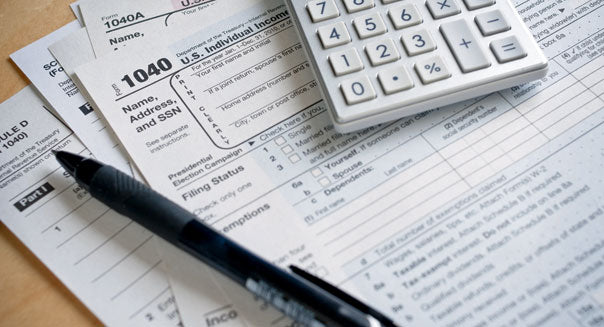5 Tax Filing Tips for Young Latino Professionals and Entrepreneurs

It's that time of the year again, tax season!
I understand why you would get anxious every year about your taxes. Filing your taxes can be complicated and time consuming; especially if you are doing it by yourself. The US tax code changes every so often and sometimes you may be uncertain whether you will get money back from the IRS when you file your taxes. Below, there are five tips for young professionals and entrepreneurs to consider when filing their taxes: 1. If you are still paying student loans, make sure to take advantage of the student loan interest deduction which allows $2,500 to be deducted every year. 2. Health Savings Account (HSA) offers tax-free contributions, tax-free earning from interest and investments, and tax-free payments for qualified medical expenses. Individual maximum contribution is $3,250 and for a family is $6,450. If you are 55+, there's a $1,000 annual catch contribution. 3. If you have a home business, you can deduct $5 per square foot of your home that it's used for business purpose (maximum of 300 square feet). Also, home-related itemized deductions can be claimed; for example, real estate taxes and mortgage interest. 4. People with low- and moderate-income may be eligible for the saver's credit. It allows a $1,000 tax credit for an individual and a $2,000 for couples who save for retirement (A maximum contribution of $2,000 for individuals and $4,000 for couples). 5. Donation to charity can be deducted as well. You can deduct a maximum of 50% of your adjusted gross income (AGI), however if you exceed that amount, the excess amount can be carried forward for upto five years. For cash contribution remember to always keep your receipts. Remember that before talking to your CPA or tax advisor, the first thing you must do is to make sure to gather all the documents necessary to prove your income and/or deductions. Those documents may include your paystub, checks paid, bank statements, receipts, property taxes documents, charitable gift documents, student loan interest payments documents, medical bills, retirement contributions, etc. Once you have all the necessary documents at hand, make copies to bring to your CPA or tax advisor and keep the originals in a safe place.Juan F Polanco
Financial Advisor
Disclosure: I am not a legal or tax advisor. This article was written for education purpose only. I recommend you talk to a professional (for example, a CPA) about your specific situation.
Leave a comment
Comments will be approved before showing up.
Also in Business

Latine-Owned Businesses Navigate a Shifting Economic Landscape
What are Latine business owners experiencing in today’s economy? Drawing from our recent survey, this article explores emerging trends, shared challenges, and the resilience shaping Latino entrepreneurship as we look ahead.

Building Purposeful Connections: Inside the Latino Business Referral Network
The Latino Business Referral Network (LBRN) fosters purposeful connections among Latino professionals and small business owners. Through Silicon Valley Latino’s ecosystem, including ShopLatino.Market, these relationships help elevate Latino-owned businesses and strengthen long-term growth.


